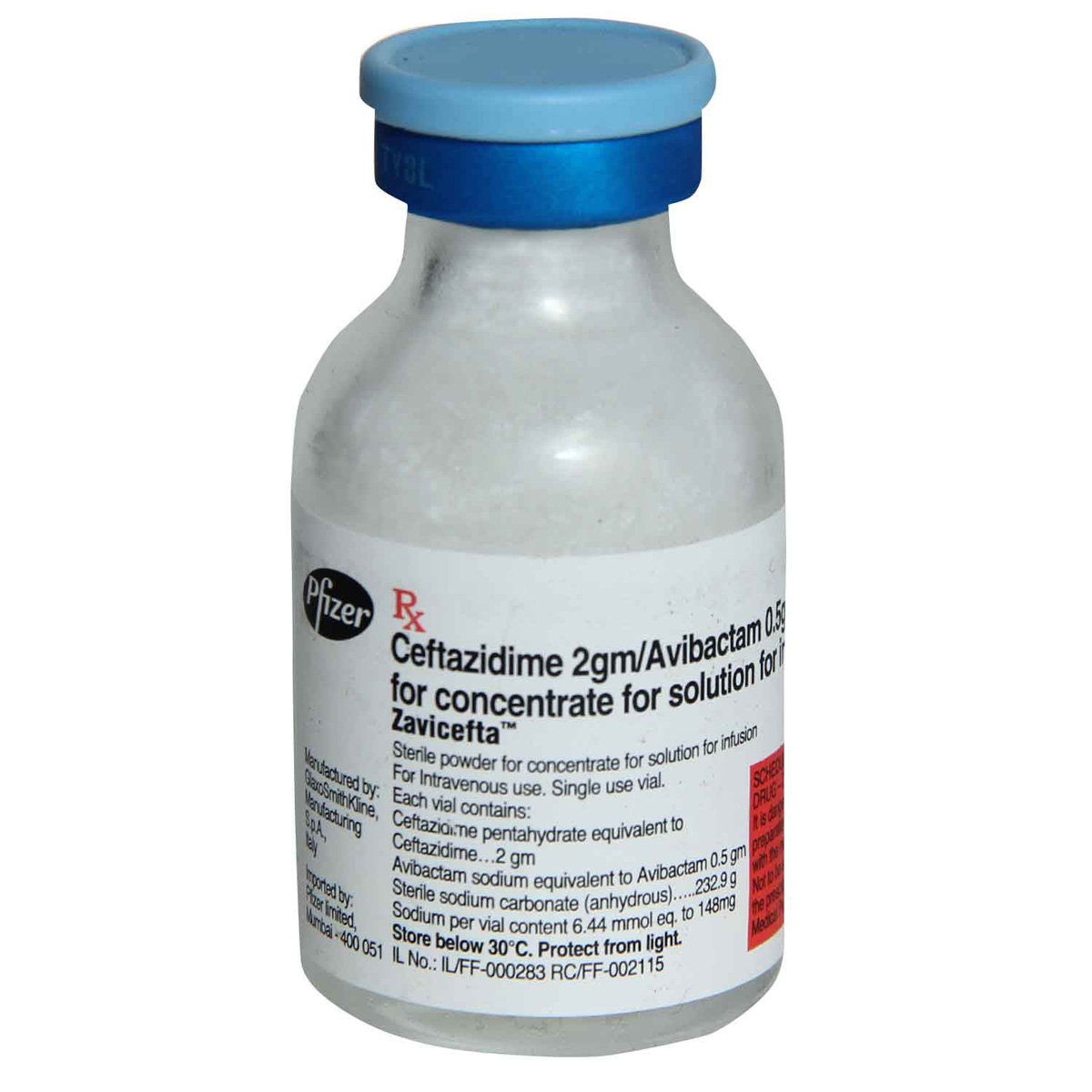Zivictam Injection 1's
MRP ₹4564.5
(Inclusive of all Taxes)
₹684.7 Cashback (15%)
Provide Delivery Location
Online payment accepted
 Prescription drug
Prescription drugWhats That
Composition :
Manufacturer/Marketer :
Consume Type :
Expires on or after :
Return Policy :
About Zivictam Injection
Zivictam Injection belongs to a class of medicines called antibiotics used in the treatment of bacterial infections of the urinary tract, respiratory tract and abdomen. A bacterial infection is a condition in which harmful bacteria grow in the body and cause infection. Bacteremia is the presence of bacteria in the blood.
Zivictam Injection contains Ceftazidime and Avibactam. Ceftazidime works by interfering with the formation of the bacterial cell wall (a protective covering) that is necessary for their survival. Avibactam decreases bacterial resistance and enhances the activity of Ceftazidime against the bacteria. Together, Zivictam Injection helps to treat bacterial infections.
In some cases, you may experience redness and swelling at the site of injection, and/or nausea and diarrhoea. Most of these side effects of Zivictam Injection do not require medical attention and gradually resolve over time. However, if the side effects persist or worsen, please consult your doctor.
If you are allergic to Zivictam Injection or any other medicines, please tell your doctor. If you are pregnant or breastfeeding, please inform your doctor before taking Zivictam Injection. Drive only if you are alert as Zivictam Injection may cause dizziness. Zivictam Injection should be used with caution in those with renal impairment and Clostridium difficile-associated diarrhoea.
Uses of Zivictam Injection
Directions for Use
Key Benefits
Zivictam Injection contains Ceftazidime and Avibactam; they act against both aerobic (grow in the presence of oxygen) and anaerobic (grow in the absence of oxygen) gram-negative and gram-positive bacteria. It is used in the treatment of bacterial infections of the urinary tract, respiratory tract, and abdomen. Ceftazidime inhibits enzymes that regulate the formation of the bacterial cell wall, thereby arresting bacterial development. Avibactam is a beta-lactamase inhibitor. Beta-lactamase is an enzyme that inactivates antibiotics and builds up a drug resistance. By inhibiting beta-lactamase, avibactam makes the bacteria more susceptible to antibiotic action. Zivictam Injection damages the bacterial cell wall, kills bacteria and makes the bacteria more sensitive to the action of the antibiotic. Hence Zivictam Injection finds widespread use in treating complicated bacterial infections.
Storage
- Inform your doctor immediately if you experience a fever after starting a new medication.
- Your doctor may adjust your medication regimen or dosage as needed to minimize fever symptoms.
- Monitor your body temperature to monitor fever progression.
- Drink plenty of fluids, such as water or electrolyte-rich beverages, to help your body regulate temperature.
- Get plenty of rest and engage in relaxation techniques, such as deep breathing or meditation, to help manage fever symptoms.
- Under the guidance of your doctor, consider taking medication, such as acetaminophen or ibuprofen, to help reduce fever.
- If your fever is extremely high (over 103°F), or if you experience severe symptoms such as confusion, seizures, or difficulty breathing, seek immediate medical attention.
- Report the itching to your doctor immediately; they may need to change your medication or dosage.
- Use a cool, damp cloth on the itchy area to help soothe and calm the skin, reducing itching and inflammation.
- Keep your skin hydrated and healthy with gentle, fragrance-free moisturizers.
- Try not to scratch, as this can worsen the itching and irritate your skin.
- If your doctor prescribes, you can take oral medications or apply topical creams or ointments to help relieve itching.
- Track your itching symptoms and follow your doctor's guidance to adjust your treatment plan if needed. If the itching persists, consult your doctor for further advice.
- Eosinophil levels can be lowered by eating fruits and vegetables, avoiding smoking, and consuming alcohol in moderation.
- Several foods, such as ginger, garlic, pepper, turmeric, and honey, might boost immunity.
- Avoid dairy products, including cheese, yoghurt, and milk.
- Drink water and keep yourself hydrated.
- Eat a balanced diet rich in fruits, vegetables, whole grains, lean protein, and healthy fats.
- Boost fiber, fruits, vegetables, omega-3 fatty acids, and vitamin K-rich foods.
- Limit red meat, processed foods, sugary drinks, and excessive alcohol.
- Exercise regularly with moderate-intensity activities for healthy blood flow.
- Stay hydrated by drinking plenty of water.
- Quit smoking to reduce blood clot risk.
- Practice stress-reducing techniques like yoga or meditation.
- Maintain a healthy weight to lower cardiovascular risk.
- Always seek guidance from a healthcare professional before implementing major changes to your diet or lifestyle.
- High levels of liver enzymes need immediate medical attention.
- Watch your diet and consume low-fat foods, like green leafy vegetables, fish, whole grains, nuts, etc.
- Regularly do strengthening exercises to control your cholesterol levels.
- Avoid drinking alcohol as it can affect your liver.
- Focus on losing weight as it can help control cholesterol and maintain liver enzymes.
- Practice yoga and meditation to improve liver functioning and overall health.
- Injection site reaction can include numbness or redness.
- Get a physical examination, follow your doctor's instructions, if it worsens or gets swollen.
- Apply cold compress for pain relief.
- Practice good hygiene and keep the injection site away from heat and pressure.
Drug Warnings
If you are allergic to Zivictam Injection or any other medicines, please tell your doctor. If you have kidney problems or diabetes, inform your doctor before taking Zivictam Injection. Consult your doctor if you are pregnant or breastfeeding. If you are on a controlled sodium diet, inform your doctor before taking Zivictam Injection. Zivictam Injection should not be administered if you are currently on any vaccinations or are scheduled for the same. If you have a widespread rash with peeling skin and blisters, please consult a doctor immediately as these might be signs of Stevens-Johnson syndrome. Drive only if you are alert as Zivictam Injection may cause dizziness. You are recommended to complete the full course of Zivictam Injection as prescribed by your doctor for effective results.
Drug-Drug Interactions
Drug-Drug Interactions
Login/Sign Up
Taking the cholera vaccine after or along with Zivictam Injection may reduce the activity of the vaccine.
How to manage the interaction:
Co-administration of Zivictam Injection with Cholera vaccines can possibly result in an interaction, but it can be taken if your doctor has advised it. You should wait at least 14 days after finishing your antibiotic treatment before receiving the cholera vaccine in order to ensure an appropriate immune response. In case you experience any unusual symptoms, consult a doctor. Do not stop using any medications without a doctor's advice.
Taking the cholera vaccine after or along with Zivictam Injection may reduce the activity of the vaccine.
How to manage the interaction:
Taking Zivictam Injection with Cholera, live attenuated together can possibly result in an interaction, but it can be taken if your doctor has advised it. You should wait at least 14 days after finishing your antibiotic treatment before receiving the cholera vaccine in order to ensure an appropriate immune response. In case of any unusual symptoms, consult a doctor. Do not discontinue any medications without first consulting your doctor.
Drug-Food Interactions
Drug-Food Interactions
Login/Sign Up
Diet & Lifestyle Advise
- Take probiotics after completing the full course of Zivictam Injection to restore some healthy bacteria in the intestines that may have been killed. Taking probiotics after antibiotic treatment can reduce the risk of antibiotic-associated diarrhoea. Certain fermented foods like cheese, yoghurt, kombucha, sauerkraut and kimchi can help to restore the good bacteria of the intestine.
- Include fibre-rich foods, as they can be easily digested by your gut bacteria, which helps stimulate their growth. Whole grains such as whole-grain bread, brown rice should be included in your diet.
- Make sure you drink plenty of water or other fluids every day while you are taking Zivictam Injection.
- Avoid alcohol consumption as it may increase adverse effects.
Side Effects of Zivictam Injection
- Redness and swelling on injection site
- Diarrhoea
- Dizziness
- Nausea
Habit Forming
Therapeutic Class
All Substitutes & Brand Comparisons
RX
Out of StockNot for online saleInfegam 2 gm/0.5 gm Injection 1's
Biocon Ltd
₹1499
(₹1499.0 per unit)
59% CHEAPERRX
Not for online saleZilias Injection 1's
Intas Pharmaceuticals Ltd
₹2700
(₹2214.0 per unit)
40% CHEAPERRX
Not for online saleZeftabac Injection 1's
Lupin Ltd
₹4640.5
(₹3805.2 per unit)
1% COSTLIER
Drug-Diseases Interactions
Drug-Diseases Interactions
Login/Sign Up
FAQs
Drug-Drug Interactions Checker List
- PROBENECID
- CHLORAMPHENICOL
- TOBRAMYCIN
- GENTAMICIN
- FUROSEMIDE
Special Advise
- Regular kidney function tests are recommended, especially in patients with kidney problems while taking Zivictam Injection so that the dose may be adjusted accordingly.
- If you are about to undergo any blood or urine tests, inform your doctor that you are taking Zivictam Injection as it may interfere with these tests.
- Zivictam Injection may interact with certain tests such as glucose (sugar) in urine and coomb’s test (blood test), resulting in unusual results. Therefore, inform the lab technician that you are taking Zivictam Injection before undergoing any tests.
Disease/Condition Glossary
Bacterial Infection: A bacterial infection is a condition in which harmful bacteria enter, multiply, and infect our body. Infectious or harmful bacteria can make you sick and reproduce quickly in your body. These harmful bacteria produce chemicals known as toxins, which can damage tissue and make you sick. It can target any body part and multiply very quickly. When you get infected with bacteria, you can experience generalized symptoms, like fevers, chills, and fatigue.

Have a query?
Alcohol
Safe if prescribed
The interaction of Zivictam Injection with alcohol is unknown. Please consult a doctor before consuming alcohol while using Zivictam Injection.
Pregnancy
Consult your doctor
Please consult a doctor if you are pregnant or planning for pregnancy. Your doctor will prescribe only if the benefits outweigh the risks.
Breast Feeding
Consult your doctor
Zivictam Injection may be excreted in human milk in small amounts. Therefore, it is given to breastfeeding mothers only if the doctor thinks benefits are greater than risks. Please consult a doctor if you are breastfeeding.
Driving
Safe if prescribed
Zivictam Injection may cause dizziness. Therefore, avoid driving if you feel dizzy after taking Zivictam Injection.
Liver
Consult your doctor
Take Zivictam Injection with caution, especially if you have a history of liver diseases/conditions. The dose may be adjusted by your doctor as required.
Kidney
Consult your doctor
Take Zivictam Injection with caution, especially if you have a history of kidney diseases/conditions. The dose may be adjusted by your doctor as required.
Children
Safe if prescribed
Zivictam Injection should be used in children only in doses as prescribed by a doctor. Zivictam Injection is not recommended for use in children below 3months.







